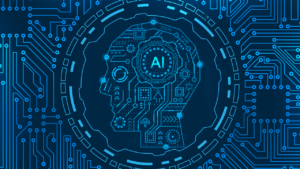We live in a data-driven world. Don’t believe it? Yossi Sheffi, Director of the MIT Center for Transportation & Logistics, insists, “The well-worn adage that a company’s most valuable asset is its people needs an update. Today, it’s not people but data that tops the asset value list for companies.”[1] Why is data so important? According to Biswanath Choudhary, Chief Operating Officer at SG Analytics, “In a data-driven world, we are expected to draw conclusions, make predictions, and drive informed decision-making.”[2] Reality, however, does not always match expectations. Nevertheless, emerging technologies are bringing the goals of a data-driven business world closer to reality. Choudhary explains, “To make that happen, the collection, transformation, and organization of data are critical. In the last few years, along with Data Analytics, Machine Learning (ML), Artificial Intelligence (AI), and Internet of Things (IoT), Intelligent Automation (IA) has gained popularity as they are enabling software bots to replicate human actions to perform tasks effectively. The rising adoption has triggered improved operational efficiency, reduced time-to-market, and guaranteed high security.”
What is Intelligent Automation?
Companies have been automating processes for a long time. Journalist Linda Rosencrance explains, “Automation in the workplace is nothing new — organizations have used it for centuries.”[3] She notes, however, that intelligent automation is something new. She writes, “In recent decades, companies have flocked to robotic process automation (RPA) as a way to streamline operations, reduce errors, and save money by automating routine business tasks. Now organizations are turning to intelligent automation to automate key business processes to boost revenues, operate more efficiently, and deliver exceptional customer experiences. Intelligent automation is a smarter version of RPA that makes use of machine learning, artificial intelligence, and cognitive technologies such as natural language processing to handle more complex processes, guide better business decisions, and shed light on new opportunities.” Dinesh Nirmal, Senior Vice President for Products at IBM Software, adds, “Intelligent automation can bring myriad benefits to the enterprise, both within IT and across the business. … Intelligent automation, which is the use of automation technologies including AI, business process management, robotic process automation, and others to streamline and scale decision-making across organizations, can simplify processes, free up resources, and improve operational efficiencies. Among the many potential benefits are reduced costs, increased productivity, more resilient supply chains, and an improved customer experience.”[4]
Pranjal Sharma, an economic analyst, advisor and author, notes, “Newer versions of automation are not only digitizing business processes but are also allowing insights to improve efficiency.”[5] Like Rosencrance and Nirmal, he notes that intelligent automation generally uses robotic process automation as the starting point. He explains, “Robotic process automation helped bring transparency and efficiency in businesses. The next evolution of RPA is intelligent process automation, or IPA.” At Enterra Solutions® we refer to intelligent process automation as Cognitive Process Automation™ (CPA). Whatever you want to call it, intelligent automation is the next step in automating business processes. Sharma notes that analysts from Cognizant explain what’s happening this way: “RPA takes repetitive manual tasks and uses bots, or software robots, to replace them with automated workflows. IPA goes a step further, adding advanced cognitive technologies such as AI to expand business process automation across the entire enterprise.” Sharma concludes, “While RPA is automation of a process that repeats itself blindly, IPA adds its thinking cap.”
The Future of Intelligent Automation
Tech writer Arthur Cole observes, “Artificial intelligence is making a big splash in enterprise applications across the board, but most of the attention has gone to public-facing functions like chatbots and personal or professional assistants. But this masks the fact that much of the real action is taking place behind the scenes, in the myriad back office processes that contribute to the costs and complexities of running a modern organization.”[6] For routine tasks involving repetitive actions, RPA is generally sufficient. However, in situations where some discretion must be used, IPA is a better choice. Jeff Gallino, CTO and Founder at CallMiner, explains, “When combined, the two can be used as business and innovation accelerators that not only improve the employee experience, but the customer experience as well, leading to improved customer loyalty, brand reputation and overall bottom-line results.”[7] Min Sun, an associate professor at National Tsing Hua University, adds, “Many actions, while repetitive, require insight and consideration by a human with knowledge and experience. And this is where the next generation of RPA tools can leverage AI. Humans are very good at answering the question of ‘What else is important or interesting?’. AI will help RPA tools go further than simply adding more variables to a query. AI will allow RPA to take the next step and answer the question of ‘What else?’. In effect, the application of AI to RPA will allow these tools to expand the scope of what they can do.”[8]
One capability that will enhance efforts to make RPA intelligent is Autonomous Decision Science™ (ADS®). Process automation will never truly meet the “intelligent” criteria until it can make decisions autonomously. ADS is the next step in the journey beyond data science. Using ADS, the machine plays the role of the data scientist or subject matter expert to help optimize business processes and assist companies to run at the speed of the marketplace. When disruptions occur, companies leveraging intelligent process automation are much better situated to ensure a continuity of operations. Cole notes, “Not all back office processes are the same, however, and some will take to this new paradigm more quickly than others. The task at hand, then, is to determine which functions aren’t just the easiest to automate but will contribute most directly to the bottom line.” Organizations looking to implement RPA or intelligent process automation should also take the opportunity to review their processes and, when necessary, improve them before automating them. As Bill Gates once noted, “The first rule of any technology used in a business is that automation applied to an efficient operation will magnify the efficiency. The second is that automation applied to an inefficient operation will magnify the inefficiency.”
Footnotes
[1] Yossi Sheffi, “What is a Company’s Most Valuable Asset? Not People,” LinkedIn, 19 December 2018.
[2] Biswanath Choudhary, “Along with Data Analytics & Machine Learning, Intelligent Automation poised to solve global business problems,” Financial Express, 27 November 2022.
[3] Linda Rosencrance, “How intelligent automation will change the way we work,” ComputerWorld, 17 November 2022.
[4] Katherine Noyes, “IBM Exec: 7 Places to Start Using Intelligent Automation,” The Wall Street Journal, 7 November 2022.
[5] Pranjal Sharma, “The new wave of process automation is intelligent,” Business Standard, 13 November 2022.
[6] Arthur Cole, “How AI is quietly revolutionizing the back office,” Venture Beat, 24 June 2022.
[7] Jeff Gallino, “Why AI And Robotic Process Automation Are The Perfect Match,” Forbes, 18 September 2020.
[8] Min Sun, “The future of RPA: Tapping into the power of AI and data,” ITProPortal, 11 September 2020.





